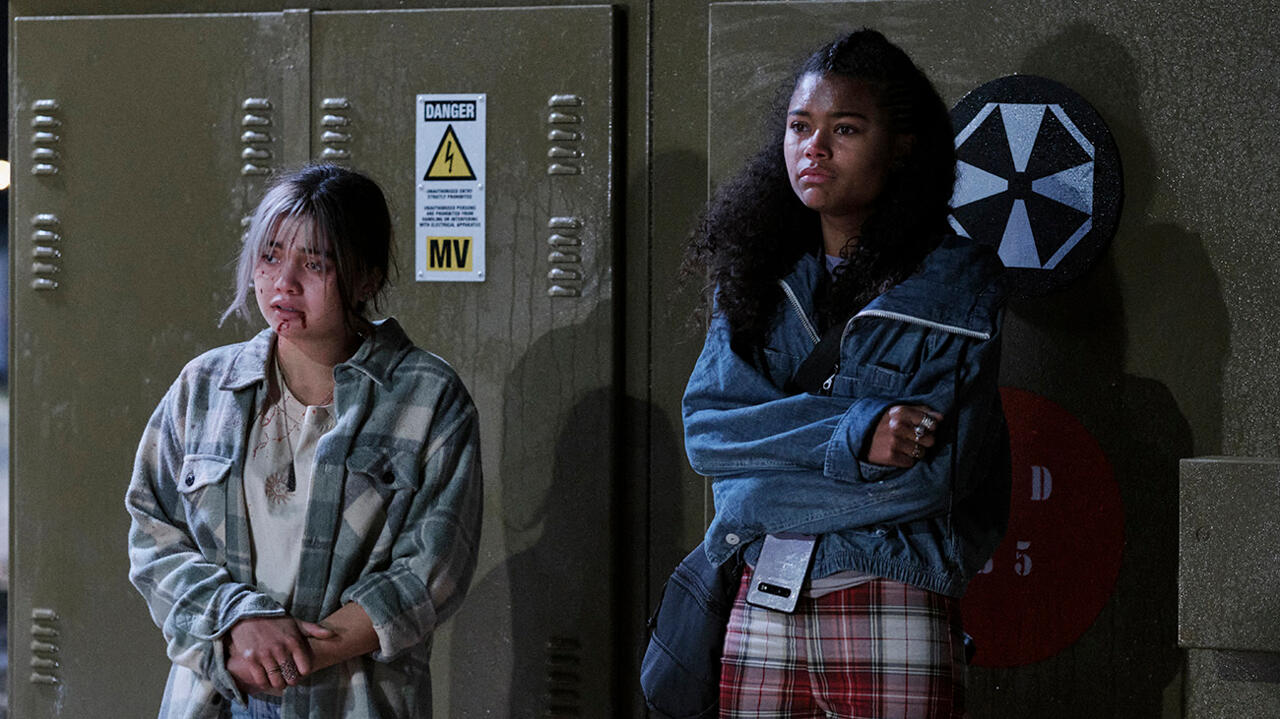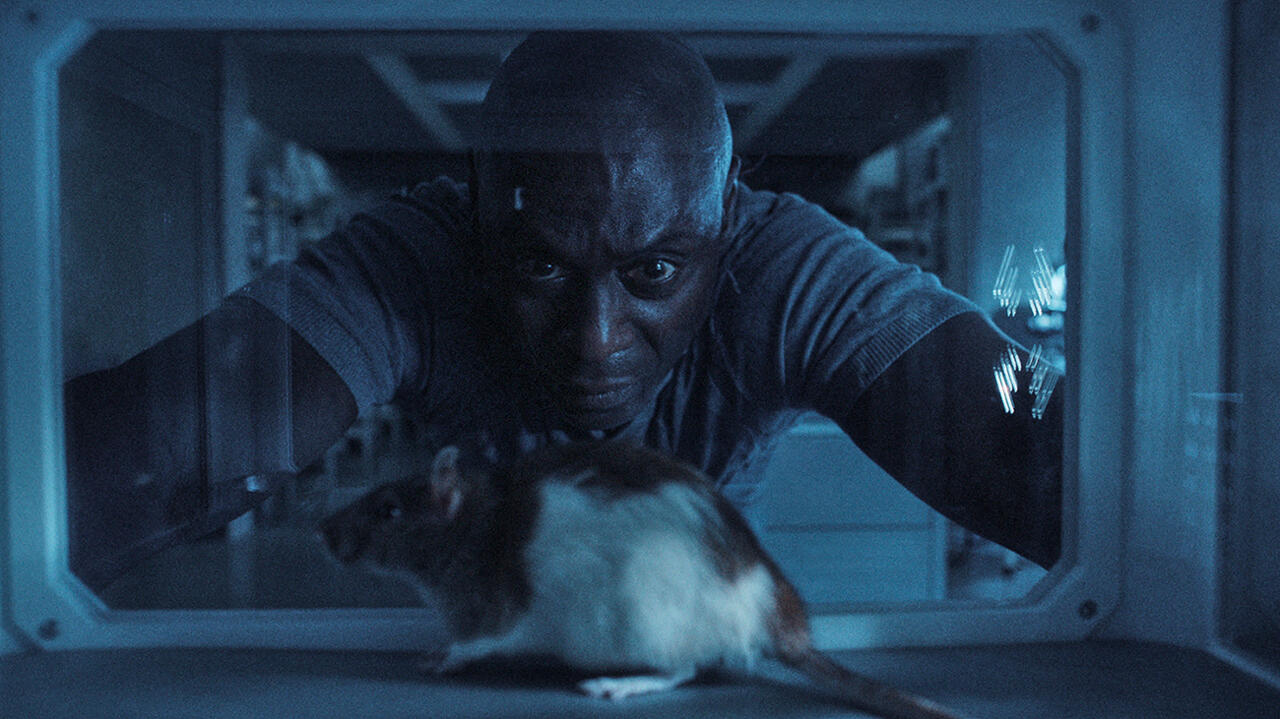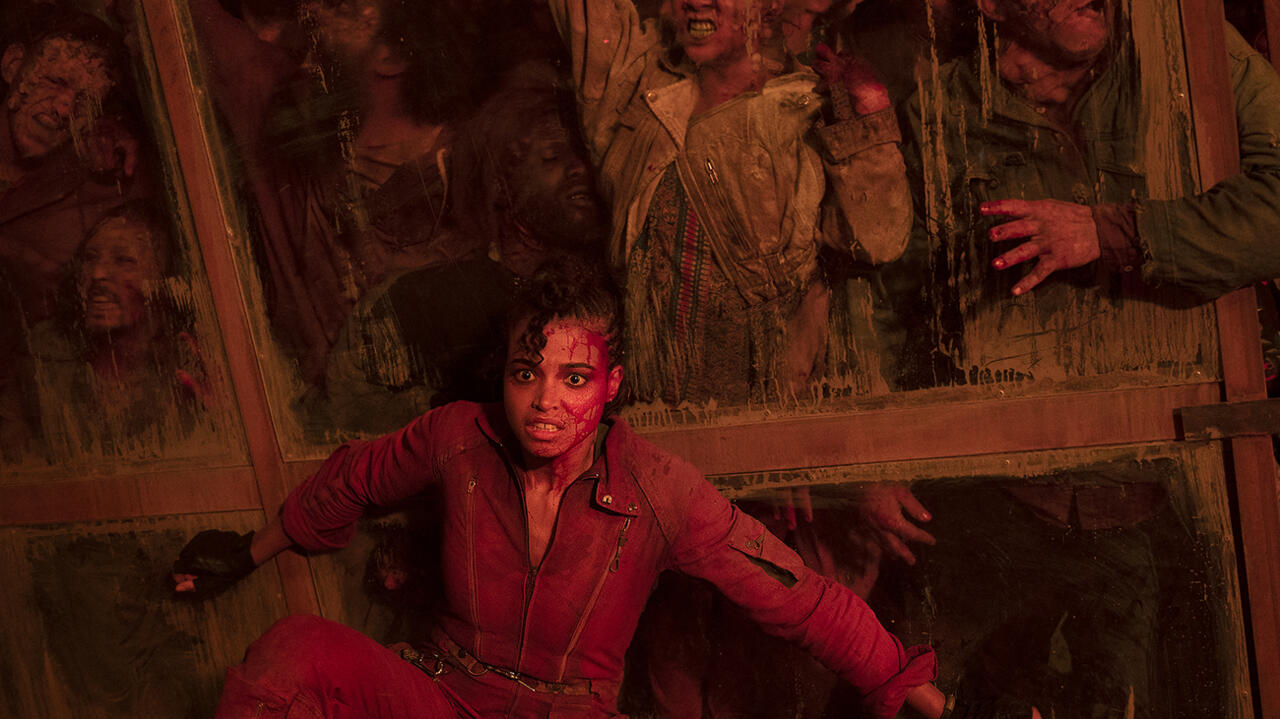Outside of Sonic the Hedgehog and his plethora of animated shows, has any video game franchise been adapted into TV and movies more than Resident Evil? It's hard to think of one, what with seven different live-action movies and a handful of animated shows and films. Yet still, our fascination with the world of the games and the horrific Umbrella Corporation responsible for its terrors never sours. Now, with the first live-action TV show adaptation on Netflix, we are getting an entirely new Resident Evil story, though one that feels largely at home in the universe.
Netflix's Resident Evil premieres July 14, and after watching the entire first season, it's safe to say that this is one of the "good" video game adaptations that is being bestowed on the world. Like the six-movie series starring Milla Jovovich, it's telling a new story that's not beholden to the events of the games, but with the series' major trappings: namely, zombies and mutant monsters created by an evil pharmaceutical corporation. However, unlike those films, everything that's happened in the video game franchise through 2021's Resident Evil: Village serves as the backdrop for the story.
The show plays out in two separate years: 2022 (before the zombie-infested apocalypse) and 2036 (well after it). In 2036, the series follows Jade Wesker as she finds herself stranded in the middle of a largely abandoned piece of the world, studying the infected. That story slowly unravels, showing just how bad things have gotten and how the nefarious Umbrella Corporation is at fault for pretty much all of it.
Then, back in 2022, the story follows a younger Jade and her sister Billie as they contend with life having moved to Umbrella's owned and operated planned community, New Raccoon City. As you might expect, everything there is truly weird, nobody likes to talk about the old Raccoon City. For those that don't know the games, the T-virus overran the original Raccoon City, leading to Umbrella detonating a nuclear device to take care of their problems in Resident Evil 2.

It's an interesting approach to telling the Resident Evil story, showcasing two different plots--14 years apart--with the assumption that they will eventually meet in the middle, filling out the details of how the world fell apart. And thankfully, it's an approach that absolutely works within the framing of the show. It's clear from the jump that Umbrella is up to something terrible with its new drug "Joy," which includes pieces of the T-virus that has created so many infected monsters throughout Resident Evil history. What, you thought Umbrella would have learned from the error of their ways? No chance. Besides, they somehow managed to cover up the last disaster, what's to say they can't do it again?
Watching the head of this pharmaceutical company, Evelyn Marcus, chase profits while justifying using such dangerous materials, it's easy for us to see the inevitable coming from a mile away. Watching it unfold like this, though, is engaging, if only because the other half of the story is entombed in the aftermath of Umbrella's decisions. Seeing Evelyn defend using pieces of the T-virus to Umbrella's highest-ranking executives, only to have the scene shift to a post-apocalyptic wasteland, is jarring in all of the best ways.
At the heart of the show, though, are Jade and Billie. Played in 2022 by Tamara Smart and Siena Agudong, respectively, and in 2036 by Ella Balinska and Adeline Rudolph, we see how time and the end of the world has changed these two--for better or worse. We see them struggle together as they begin uncovering secrets held by Umbrella their father, high-ranking Umbrella scientist Albert Wesker, and see where that leaves them, as 2036 finds Jade on the run from the evil corporation and studying the infected "zeroes" that now far outnumber surviving humans on Earth.
Something that helps this work so well is that these are new characters. We're not dealing with Jill Valentine or Clare Redfield, but instead completely fresh characters in this world. It allows viewers familiar with the franchise to watch them without any preconceived notions of how they should act or what their next steps should be.

However, longtime fans may have a bit more difficulty doing that with Albert Wesker. Played by Lance Reddick in the series, Wesker here isn't quite like the sneering, over-the-top villain you remember from the games. He's an attentive father and gifted scientist. However, the secrets he's holding back from his daughter go a long way in explaining who this take on the character is. So while he might seem strange to fans, stick with his character development, because it pays off.
Another thing Resident Evil fanatics are going to be wondering about is, well, the gore. After all, the games and movies are filled with zombies, giant monsters, and plenty of blood and guts to keep things perfectly horrifying. The show doesn't skimp on these aspects, with hordes of infected walking the streets in 2036, a number of notable creatures from the games playing important roles--zombie dogs are just the beginning--and even certain familiar disturbing characters popping up here and there. If the horror is what draws you into Resident Evil, this show should serve your needs rather well.
If, however, you're a stickler for canon and don't like when things diverge from the established plot at all, you might have some trouble with Netflix's Resident Evil. While it is set after the events of Village, it's not going to be beholden to any of the games to come and ultimately reserves the right to remix little bits of the canon where appropriate. Some of it will be explained in a way that might soften the blow, but if you're fully opposed to the idea of a version of Albert Wesker having two daughters and can't make sense of how that could fit into Resident Evil video game logic, the show might be biting off more than you can chew.

Still, even if there are some tweaks made along the way, Season 1 feels far more like a Resident Evil story than Halo's inaugural season ended up resembling the franchise it was based on. Unlike Halo, which played the part well for a few episodes provided to press for review before wildly diverging from what fans expect from the series, Netflix's Resident Evil knows where it comes from and is largely living up to the hype.
While this might not be the first Resident Evil adaptation, it's off to a strong start to claim the award for best adaptation we've yet seen. That's not a shot at the beloved movie franchise, but simply a nod to the idea that Netflix's take feels more at home in the video game world. Its storytelling approach of unfolding the plot at two separate points in time over a decade apart keeps things unique and engaging, while tracking the characters through an impending apocalypse in hopeful future seasons should be thrilling to watch--provided Netflix doesn't cancel the show as it has a number of other high-profile series (anyone else remember Cowboy Bebop?). In all, Resident Evil is well worth your time and, ultimately, you may be very surprised by how deeply it draws you into its web.



